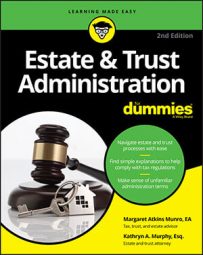You may find it valuable to file a Form 2848, Power of Attorney and Declaration of Representative, with the IRS as executor or administrator, appointing an attorney, certified public accountant, Enrolled Agent, family member, or someone else who prepared the tax return in question to act on your behalf with regard to some or all of the decedent’s tax matters.
Form 2848 may be filed at any time after your appointment as executor or administrator. If you file a Form 2848, be sure to attach a copy to Form 706 as an exhibit.
You may find it convenient to have someone available who can deal with the IRS on your behalf, and you can add powers not already listed on the Form 2848 or delete any you don’t want to bestow. You can also rescind the power of attorney at any time. If you have different tax preparers for different returns, you may want to have a separate Form 2848 for each.
Keep in mind that the Form 706 contains its own version of a power of attorney, specific to that return, in Part 4 under General Information.
However, you can name only one person (who must be an attorney, certified public accountant, or Enrolled Agent), and that person can’t enter into agreements with the IRS on your behalf regarding the Form 706, unlike a person appointed under the Form 2848, making the Form 2848 more useful to you in obtaining a 706 closing letter.
Always be sure you’re using the most current version of Form 2848, which you can find at IRS.gov under the “Forms and Publications” category.

